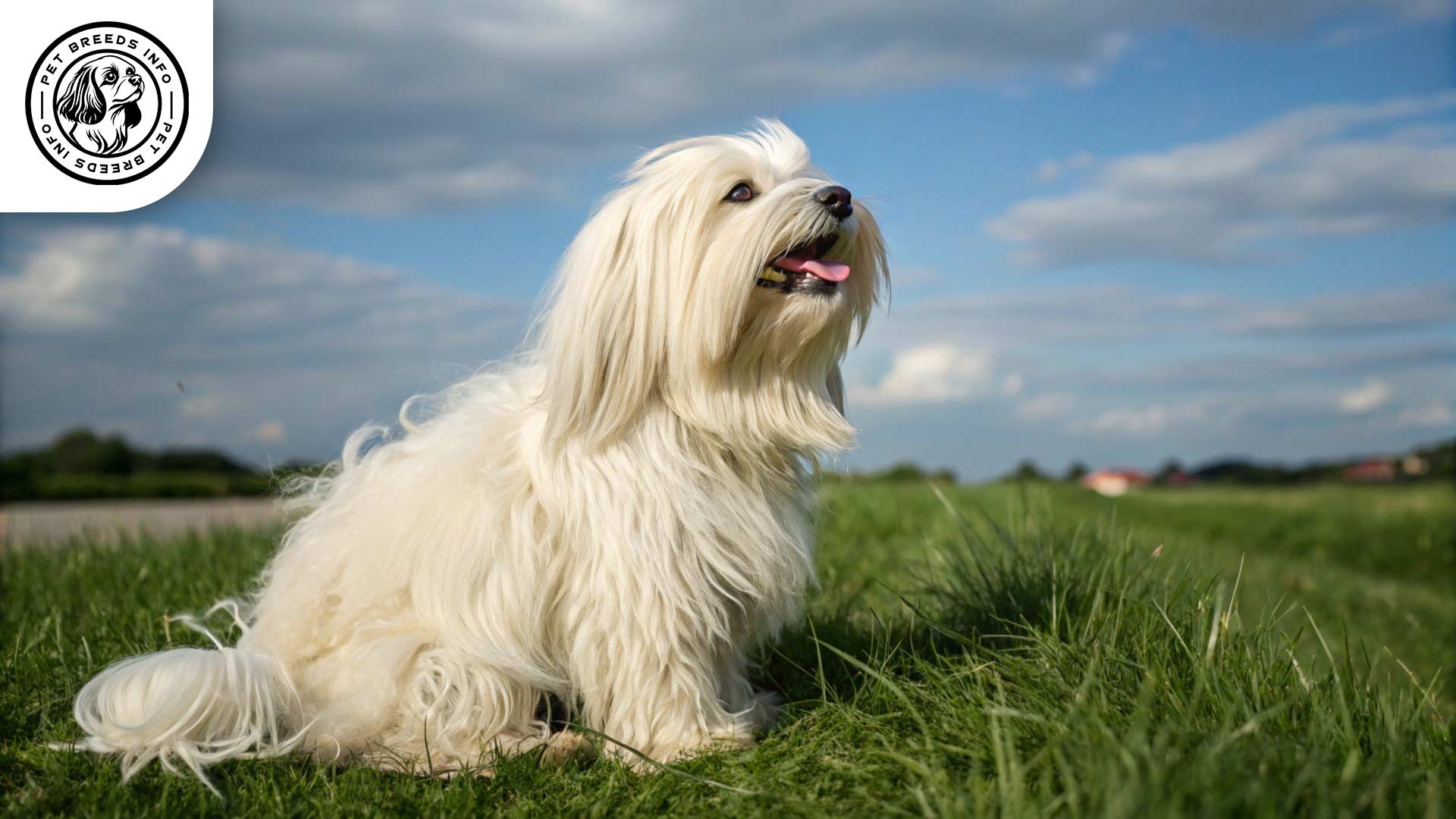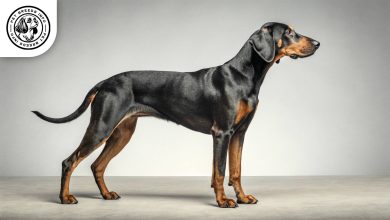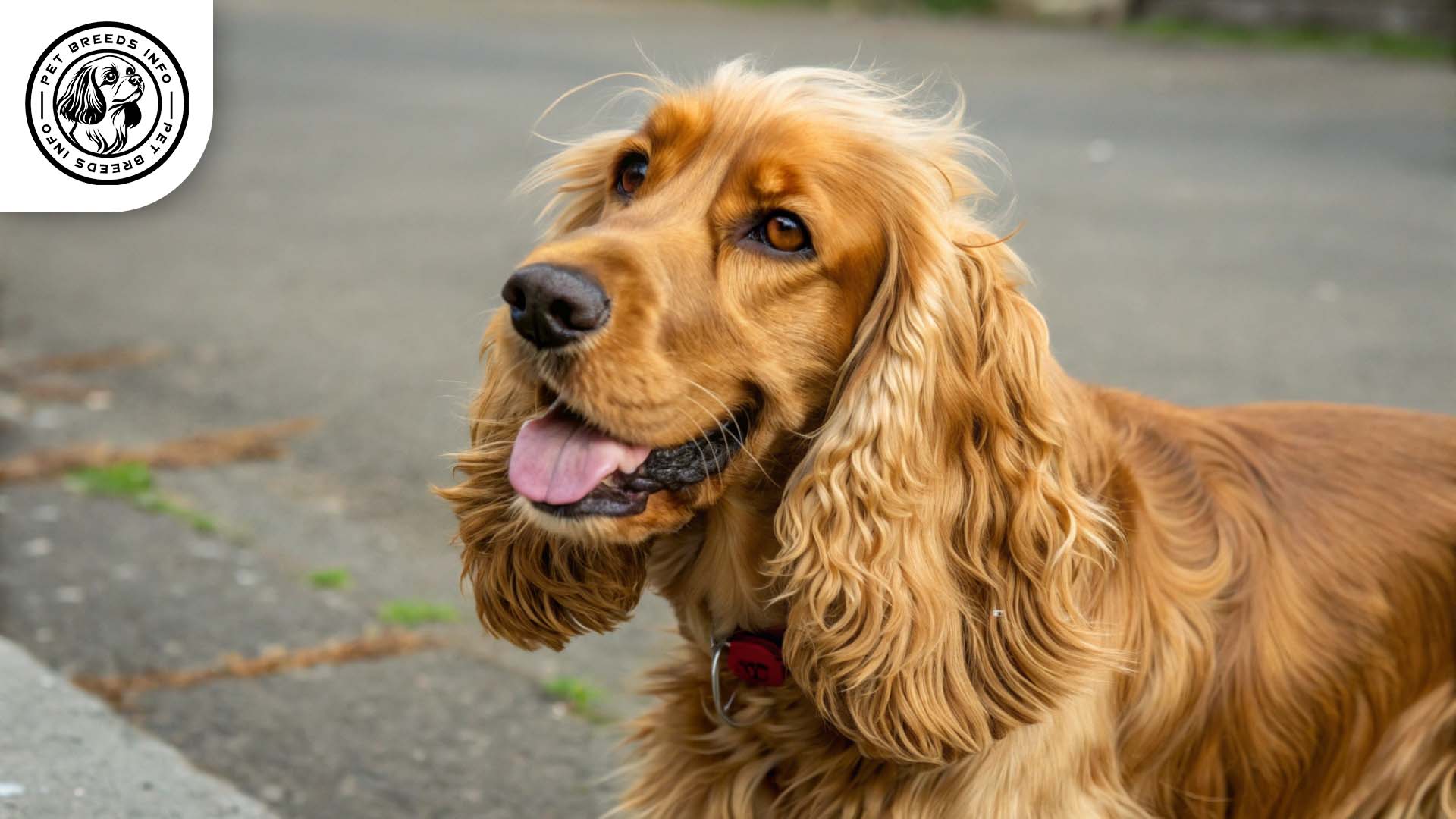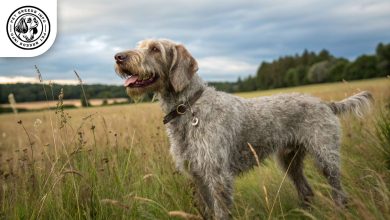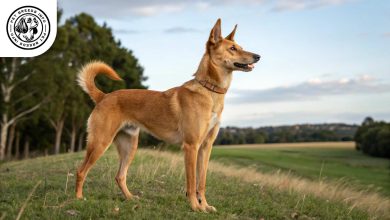Havanese Dog Breed: Size, Health, Price & Personality
General Introduction of the Breed
The Havanese is a small, affectionate dog breed known for its friendly nature and long, silky coat. It originates from Cuba and is sometimes referred to as the “Havana Silk Dog.” Historically, this breed was favored by the Cuban aristocracy and was later brought to Europe and North America, where it gained popularity as a companion dog.
Table of Contents
| Color | White, Black, Fawn, Chocolate, and various combinations (particolor, sable) |
| Weight | 10 to 16 pounds (approximately 4.5 to 7.3 kilograms) |
| Lifespan | 14 to 16 years |
| Diet | High-quality dry or wet food, portion control is important, two meals per day recommended |
| Care | Daily walks, interactive playtime, regular brushing, bathing, nail trimming, ear cleaning, dental maintenance |
| Health | Predisposed to hip dysplasia, cataracts, heart issues, patellar luxation. Regular veterinary check-ups and vaccinations are important |
| Nature | Affectionate, intelligent, easy to train, sociable, playful, sensitive to environmental changes |
| Price | $1,000 to $3,000 (depending on breeder and location) |
Physical Characteristics
The Havanese is a small but sturdy breed. Males typically stand between 8.5 to 11.5 inches tall and weigh around 10 to 16 pounds, while females have similar measurements. Their coat is long, wavy, and silky, with color variations including white, black, fawn, chocolate, and various combinations. Their eyes are dark and expressive, often giving them an intelligent and endearing look. They have drooping ears and a plumed tail that curls gently over their back, adding to their charming appearance.
Read More: Harrier Dog
Personality and Temperament
The Havanese is highly intelligent and easy to train, making it a great choice for first-time dog owners. This breed has a moderate energy level and requires regular playtime and exercise. Known for their affectionate nature, Havanese dogs form strong bonds with their owners and thrive on human interaction. They are excellent with children and usually get along well with other pets. Their playful and cheerful demeanor makes them wonderful companions, but they are also sensitive to environmental changes and prefer a stable routine.
Care and Maintenance Requirements
Havanese dogs need daily walks and interactive playtime to stay happy and healthy. They adapt well to apartment living but still require mental and physical stimulation. Their long coat requires regular brushing to prevent tangles and matting. Although they are considered a low-shedding breed, frequent grooming is necessary to keep their coat in good condition. They are sensitive to extreme temperatures, so protection from excessive heat or cold is essential. Regular hygiene care, including bathing, nail trimming, ear cleaning, and dental maintenance, is crucial for their overall health.
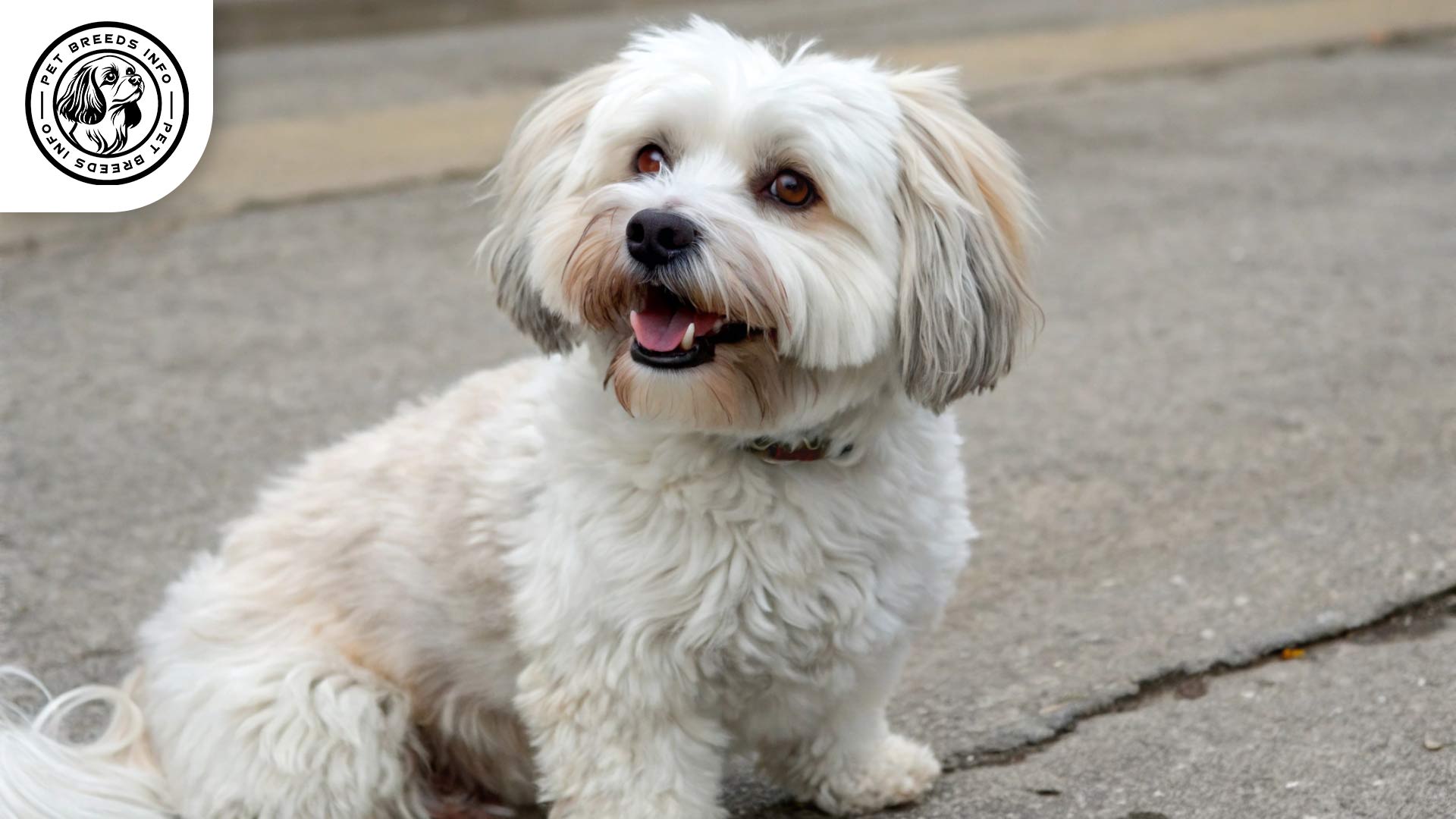
Diet and Nutrition
A balanced diet consisting of high-quality dry or wet food is ideal for a Havanese. Some owners opt for a raw or home-cooked diet, but consultations with a veterinarian are recommended before making such choices. Avoid foods like chocolate, grapes, onions, and excessive fatty foods, as they can be harmful. Portion control is important, with most Havanese requiring two meals per day to maintain a healthy weight.
Read More: Gordon Setter Dog
Health and Common Medical Issues
The average lifespan of a Havanese is around 14 to 16 years. They are generally a healthy breed but may be predisposed to conditions such as hip dysplasia, cataracts, heart issues, and patellar luxation. Regular veterinary check-ups, vaccinations, and parasite prevention can help maintain their well-being.
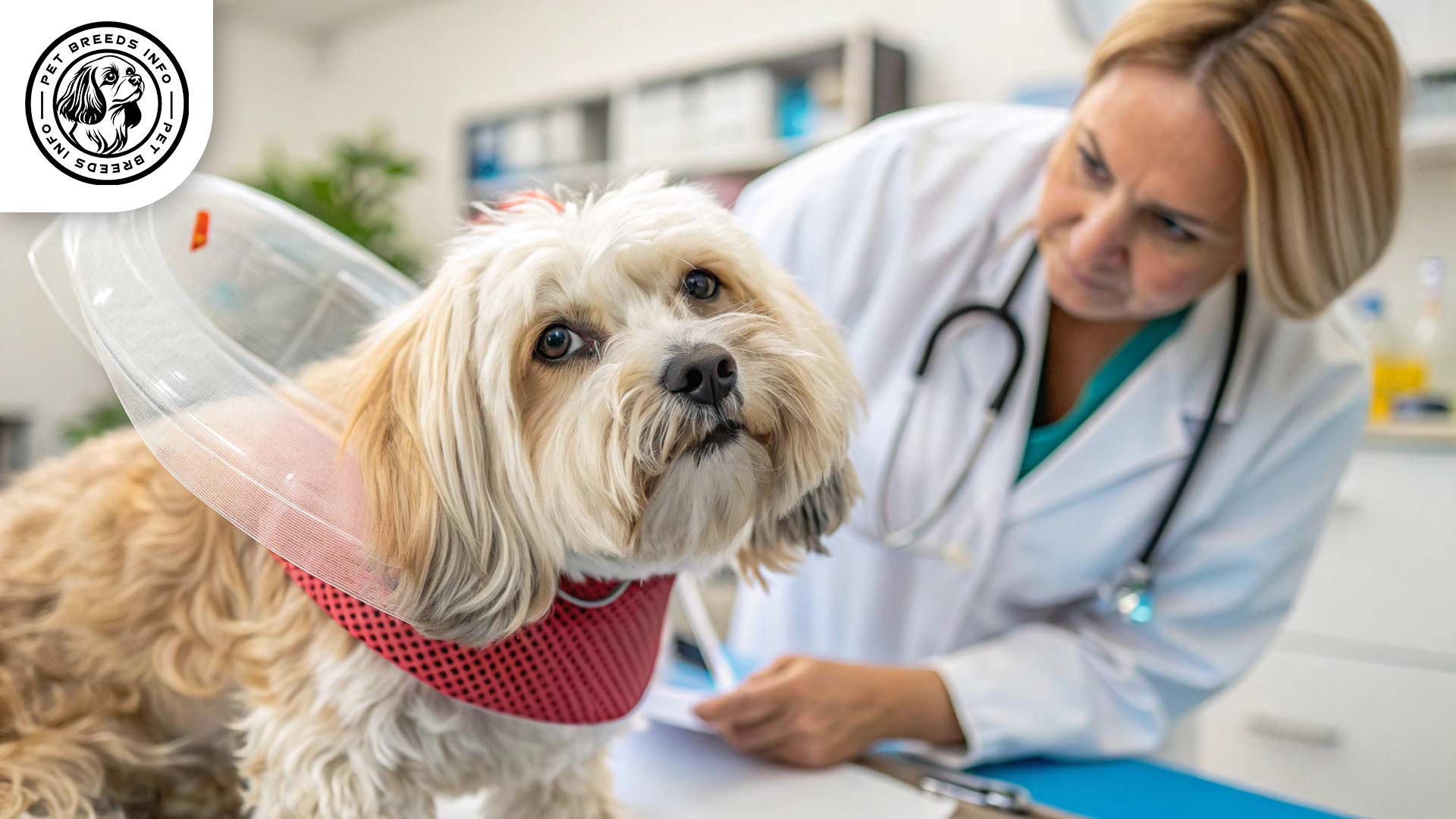
Training and Behavior Management
The Havanese is highly trainable, responding well to positive reinforcement techniques such as treats and praise. Early socialization is key to developing a well-rounded temperament. Basic obedience training should begin from a young age to instill good manners. They can be prone to separation anxiety if left alone for long periods, so crate training and gradual independence training are recommended.
Interaction with Other Animals and Humans
This breed is highly sociable and enjoys the company of children and other pets. They are great for families but also make excellent companions for individuals or seniors. They are affectionate and thrive on human attention, often preferring to stay close to their owners rather than being independent.
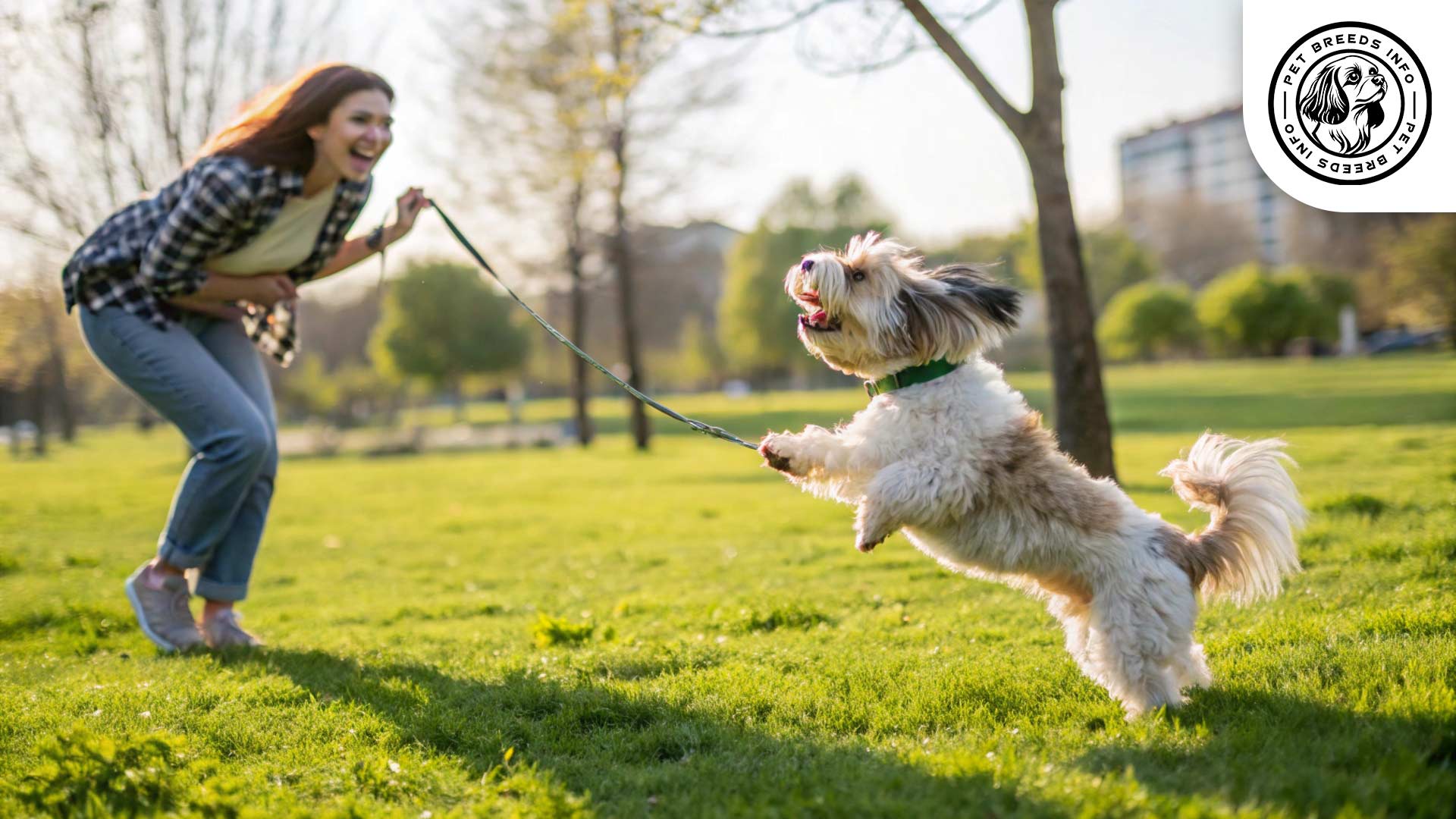
Price and Availability
The cost of a Havanese puppy can range from $1,000 to $3,000 depending on the breeder’s reputation and location. Adopting from shelters or breed-specific rescue groups is another option for those looking to provide a home to a Havanese in need. It is important to choose a reputable breeder who performs health screening to ensure a healthy puppy.
Read More: Greyhound Dog
Conclusion and Final Thoughts
The Havanese is a wonderful breed for those seeking a loving, intelligent, and social pet. Their adaptable nature makes them suitable for various living environments, including apartments. However, potential owners should be prepared to meet their grooming and companionship needs. Overall, the Havanese is an excellent choice for individuals and families looking for a devoted companion.
FAQ
What is the typical temperament of a Havanese dog?
The Havanese is known for its affectionate, intelligent, and sociable nature. They are highly trainable and make excellent companions for families and individuals alike. They thrive on human interaction and are generally good with children and other pets.
How much grooming does a Havanese require?
Havanese dogs have a long, silky coat that requires regular brushing to prevent tangles and matting. Although they are considered low-shedding, frequent grooming is necessary. This includes regular bathing, nail trimming, ear cleaning, and dental maintenance.
What are some common health issues in Havanese dogs?
While generally healthy, Havanese dogs may be predisposed to conditions such as hip dysplasia, cataracts, heart issues, and patellar luxation. Regular veterinary check-ups and preventative care are essential for their well-being.
What kind of diet is recommended for a Havanese?
A balanced diet consisting of high-quality dry or wet food is ideal for a Havanese. Portion control is important, and most Havanese require two meals per day to maintain a healthy weight. Owners should avoid feeding them harmful foods like chocolate, grapes, and onions.
Are Havanese dogs suitable for apartment living?
Yes, Havanese dogs adapt well to apartment living. They have a moderate energy level and require daily walks and playtime, but they do not need a large yard. Their adaptable nature makes them suitable for various living environments.
